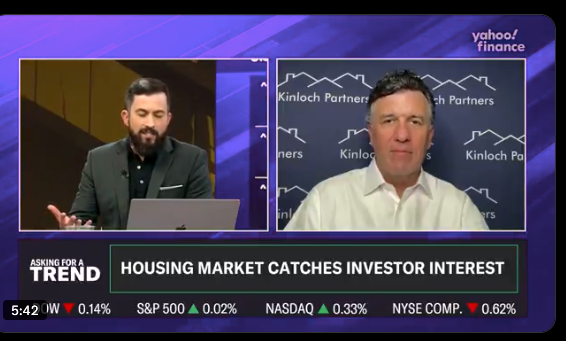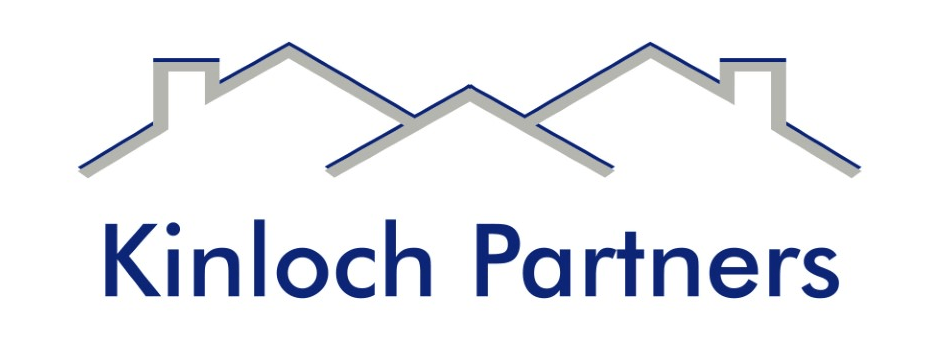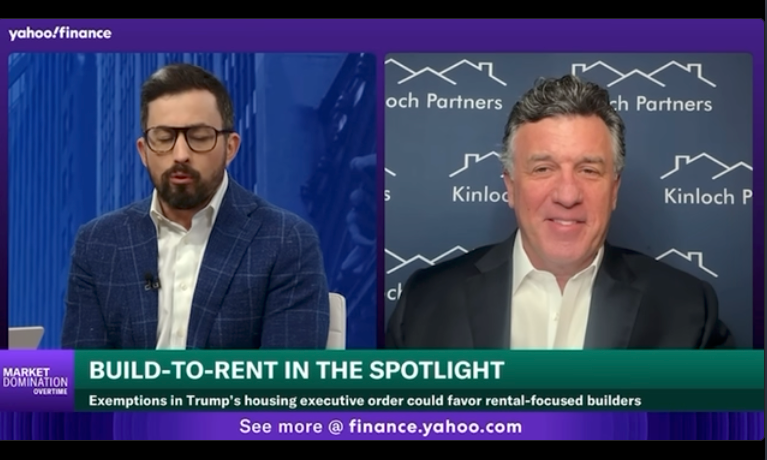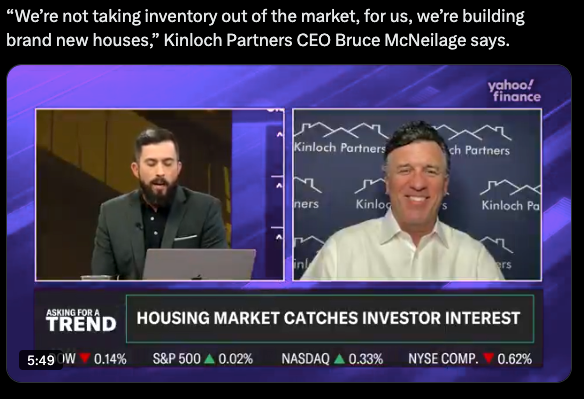California rental home company expands Nashville portfolio
Streetlane Homes pays $1.7 million for 18 properties, including in Antioch, Madison, Murfreesboro and Spring Hill.
A San Francisco-based single-family home rental investment and management company has paid $2.4 million for 18 Nashville area properties to expand its local portfolio.

Real estate investor Tim King, left, and his son, Tyler King, stand by one of the two properties they purchased in 2014. King just sold 18 Nashville area homes to Streetlane Homes.(Photo: File / The Tennessean)
Streetlane Homes now owns 272 single-family homes across the region after buying the properties in Antioch, Madison and other areas of Nashville plus in Murfreesboro and Spring Hill from local real estate investor Tim King. The deal follows the real estate investment trust paying local investor Bruce McNeilage just over $400,000 for three rental townhomes in Spring Hill last month.
“They love Nashville and are looking to buy more homes in the $150,000 to $250,000 price range,” said Scott Sunshine, a spokesman for Streetlane, which real estate private equity firms 643 Capital Management of San Francisco and GTIS Partners of New York launched last year.
The 18 homes that Streetlane bought marked King’s first sale from his portfolio of roughly 150 Nashville area single-family rental homes, which he’d amassed over the past 15 years. Now he and McNeilage are among local and regional investors capitalizing on Nashville’s hot real estate market and selling some of their holdings. The buyers include larger national players such as American Homes 4 Rent, Colony American Homes, Progress Residential and Main Street Renewal, whose interest King said reflects overall confidence in Nashville and future of the local economy.
“Small and medium-sized guys are harvesting some of their profits from these assets we bought several years ago and we’re just looking to deploy that capital into other types of housing,” said McNeilage, president of Franklin-based Kinloch Partners. “I saw it as an excellent time to sell these assets as we did hit a high in the marketplace.”
King, who sold his insurance agency two years ago to focus fully on investing in real estate, plans sales this year of more of his remaining more than 100 single-family rental homes. He plans to invest proceeds into other local real estate projects.
Last fall, King bought 310 apartment units around Nashville plus another 168 units in Huntsville. Eight-Nine King Development, which his son Tyler King leads as president, plans next month to start construction on the 31-townhomes Sky at Fern project at the corner of Fern Avenue and Brick Church Pike in northeast Nashville.
In one transaction with Streetlane, King sold 14 single-family properties in Antioch, Madison and other parts of Nashville for $1.7 million. In a second deal, he sold another four homes in Murfreesboro and Spring Hill to that company for $669,483.
Last fall McNeilage sold 28 single-family homes in the Atlanta area to Streetlane a year and a half selling 42 Nashville area homes to American Homes 4 Rent. He’s invested some of those profits in developments such as the recently opened 121-unit Solo East condos in East Nashville and also bought more than 100 other single-family homes in Atlanta.
With roughly 4,000 homes in its portfolio, Streetlane ranks among the nation’s 10 largest single-family home owner/operators. “We’re actively negotiating several large portfolio acquisitions that could make us the largest privately held single-family home REIT by year’s end,” said Reed Rawlings, the company’s vice president of business development.
In addition to owning and operating single-family homes for its own fund, Streetlane helps other owners with managing their portfolios. The company has a Nashville office.
Millennials are a key target demographic for companies such as Streetlane. “Because of their high debt-to-income ratios including from student loans, they have trouble qualifying for mortgage loans,” said Richard Exton, an appraiser with Manier and Exton in Nashville.
Exton said Streetlane’s $150,000 to $250,000 targeted price range for home purchases makes sense. “You can rent them for enough to justify the acquisition cost,” he said. “If you get into more higher priced homes, it makes it harder to make the numbers work.”
Reach Getahn Ward at gward@tennessean.com or 615-726-5968 and on Twitter @getahn.











